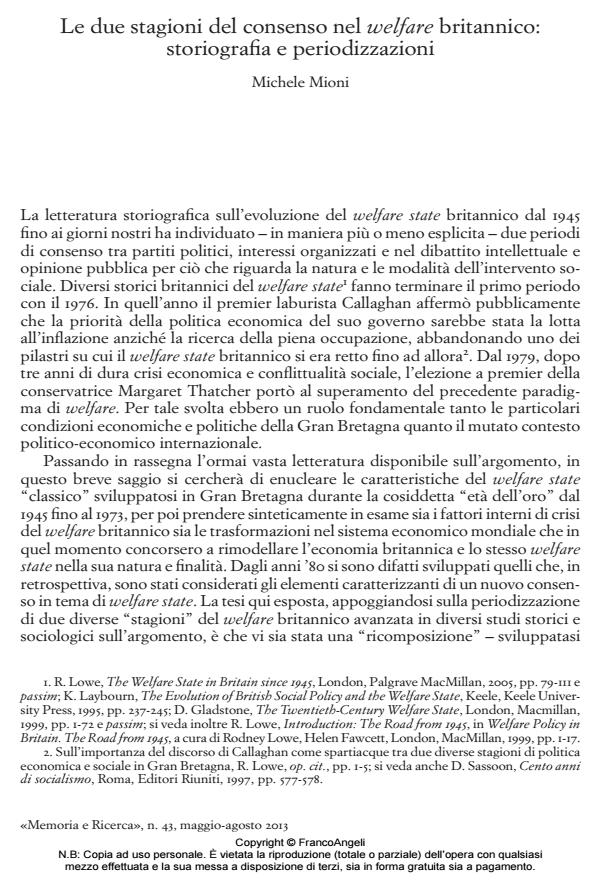The two seasons of consensus in the British welfare state: historiography and periodizations
Journal title MEMORIA E RICERCA
Author/s Michele Mioni
Publishing Year 2013 Issue 2013/43
Language Italian Pages 18 P. 167-184 File size 144 KB
DOI 10.3280/MER2013-043011
DOI is like a bar code for intellectual property: to have more infomation
click here
Below, you can see the article first page
If you want to buy this article in PDF format, you can do it, following the instructions to buy download credits

FrancoAngeli is member of Publishers International Linking Association, Inc (PILA), a not-for-profit association which run the CrossRef service enabling links to and from online scholarly content.
The scientific literature focused on the british welfare state agrees with the periodization of two great periods of consensus in the post-war Britain about the social policies. The first period had coincided with the so called "golden age" in Western Europe, approximately from 1945 to 1973. This welfare state had been inspired by the principles of the Beveridge Plan and by the keynesian economic policy. The consensus concerned both the welfare state and the economic policies, and it had been characterised by an universalistic social security system, the free national health service and a set of policies to encourage the full employment. This model fell into a crisis during the decade from 1970 to 1980, when the economical pillars whereupon the "classic" welfare state were built collapsed one by one. At the same time, the rise of neoliberals theories has challenged in the dominant political discourses the previous keynesian orthodoxy in the matter of economic policy in Britain. The same continuity of certain aspects of social policy from Thatcher’s to New Labour’s governments allowed us to identify a new consensus toward welfare policies. The reforms implemented by governments ensued from 1979 have been characterised by the structural reform of the social security system and by a sort of "return" to the residual, individual and private sector-oriented ways of social intervention, which in some sense had characterised also the social policies in Great Britain before 1945.
Keywords: Welfare state, historiography, periodization, labourism, neoliberalism, Beveridge Plan Giancarlo Monina
Michele Mioni, Le due stagioni del consenso nel welfare britannico: storiografia e periodizzazioni in "MEMORIA E RICERCA " 43/2013, pp 167-184, DOI: 10.3280/MER2013-043011